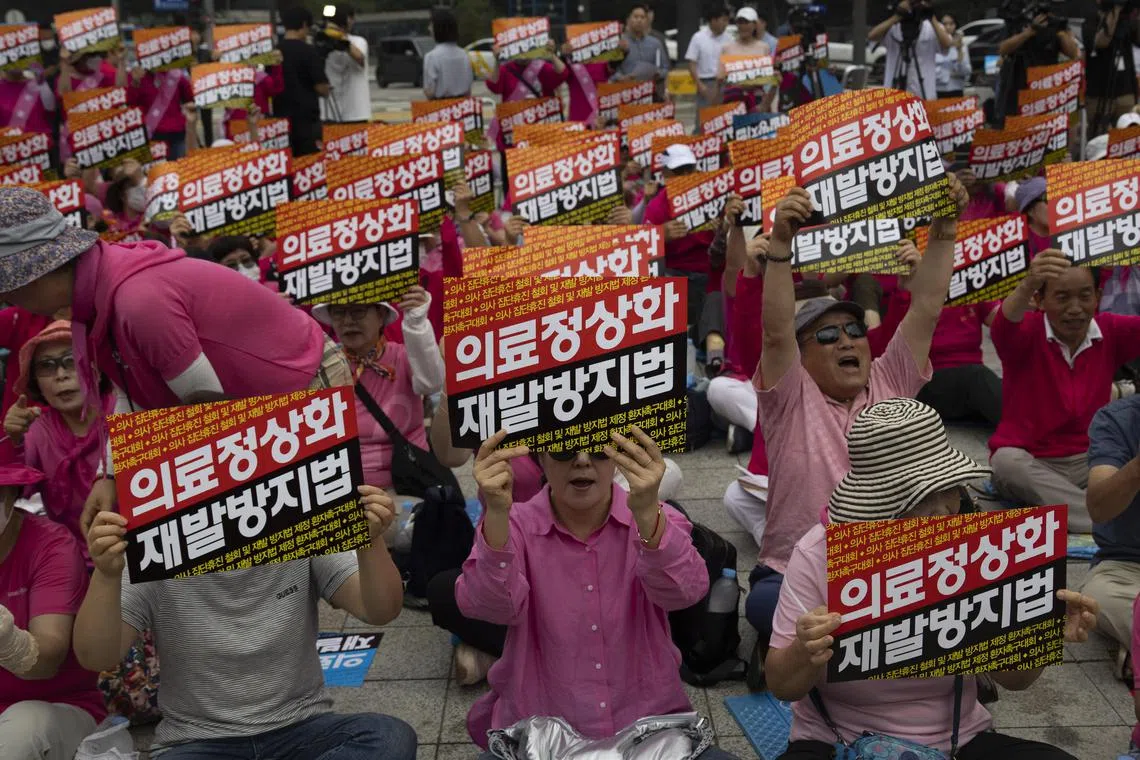Patient advocates in South Korea urge doctors to end walkout
Sign up now: Get insights on Asia's fast-moving developments

Patients and their families gathered to demand the normalisation of medical care.
PHOTO: EPA-EFE
Seoul – Hundreds of South Korean patient rights advocates gathered on July 4 to urge physicians to halt a prolonged strike that has affected public health services.
Thousands of trainee doctors stopped working in February, protesting against government plans to increase medical school quotas which they say will affect the quality of specialist education.
The strike has caused disruptions in hospitals and forced delays or cancellations of key treatments, including chemotherapy.
On July 4, around 300 protesters gathered in the capital Seoul to call for the strike to end, and for laws to prevent further industrial action.
“We could no longer bear the continuing damage and anxiety,” a statement by the organisers said. “Under no circumstances should medical services for patients be suspended.”
Ms Kim Jeong-ae, whose daughter requires treatment for a rare syndrome, said patients were being used as “pawns” by the medical community.
“Would you do this if the patients were your sons and daughters?” she said, her head shaved as a protest gesture.
In May, the government finalised an admission quota hike of around 1,500 for medical schools for 2025, which it says will tackle doctor shortages and a rapidly ageing population.
Senior doctors and medical professors at some of the nation’s key medical institutions recently joined the indefinite walkout in solidarity.
Doctors at some of the country’s largest medical facilities have also suspended outpatient treatments and non-emergency surgical procedures. AFP


